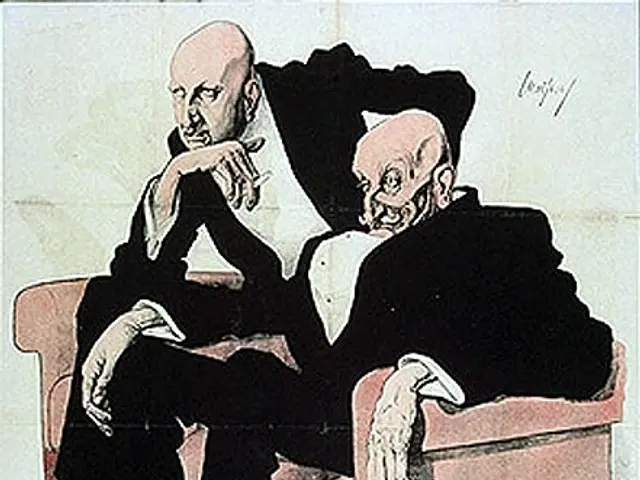Aeroflot's hacking incident in 2025 won't influence airline ticket costs
In an unprecedented turn of events, Aeroflot, Russia's flagship airline, has been hit by a cyberattack that led to the cancellation of 42 flights from Moscow on July 28. This attack has not only disrupted the airline's operations but has also brought about changes in airfare prices, as we delve into the complex interplay of cost pressures, demand fluctuations, technological interventions, and unexpected shocks.
Igor Balynin, a candidate of economic sciences and associate professor at the Financial University under the Government of the Russian Federation, has shed light on the situation. According to Balynin, the current competitive environment is causing airlines to focus on reducing fares rather than increasing them. This competitive landscape, filled with numerous carriers, prevents prices from being increased without valid reasons.
Airfare prices are influenced by multiple factors, including demand, seat availability, timing, market competition, aircraft costs, and external events such as cyberattacks. Dynamic pricing systems—often enhanced by AI—allow airlines to adjust prices in real-time based on changes in these factors.
In the context of unforeseen events like cyberattacks, airlines can suffer substantial financial losses and disruptions, leading to fluctuations in ticket prices. For example, Aeroflot lost over 3 million USD in a single day due to the cyberattack by Belarusian hackers, which likely affected their operational costs and pricing strategies. Such attacks can reduce available flights or increase operational costs, influencing higher airfares temporarily.
However, Balynin believes that when flights are not operated, the airline's operational costs decrease. Therefore, Aeroflot is unlikely to shift costs from cancelled flights onto future fares. Other carriers are not expected to take advantage of the situation to raise their prices, as they are also vying for passengers.
Other important factors affecting Aeroflot's pricing in 2025 include the rising costs of Russian-made aircraft. Prices of jets such as the MS-21 nearly doubled from $33 million to $96 million due to increased material and electronics costs, straining airline financials and maintenance expenses. This in turn pressures ticket prices upward because leases and maintenance are major airline cost centers.
Despite these pressures, technological tools—like AI-driven dynamic pricing and apps such as Hopper—help airlines and travelers better predict and lock in prices. However, fare volatility remains high depending on market shifts and events. In some cases, the decrease in airfare prices may be more than 15%, compared to last year.
In conclusion, airfare pricing in 2025 reflects a complex interplay of cost pressures, demand fluctuations, technological interventions, and unexpected shocks like cyberattacks, all dynamically influencing ticket prices for Aeroflot and other carriers. Aeroflot has reserves to cover unforeseen expenses, ensuring refunds for passengers with tickets for cancelled flights. The economist emphasized that airlines are focused on reducing fares in the current situation, making it an opportune time for travellers to explore affordable flight options.
- The cyberattack on Aeroflot has not only caused financial losses, amounting to over 3 million USD in a single day, but it has also influenced their operational costs and pricing strategies in the future.
- In the aerospace industry, the rising costs of Russian-made aircraft, like the MS-21, have nearly doubled from $33 million to $96 million, posing financial and maintenance challenges for airlines like Aeroflot, which eventually affect ticket prices.
- Technology, such as AI-driven dynamic pricing systems and travel apps, helps airlines and travelers predict and lock in ticket prices, but fare volatility remains high due to market shifts and unexpected events like cyberattacks, causing periodic decreases in airfare prices, at times by more than 15% compared to the previous year.








